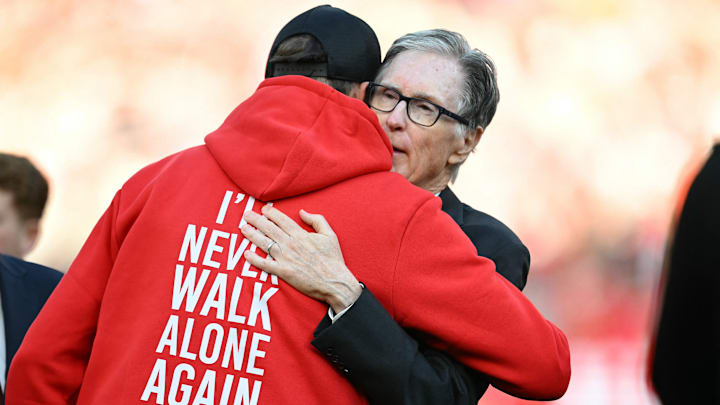For many of football’s greatest managers, you can debate how much of their success was a product of their coaching and how much was down to the talent in the squad. For Jurgen Klopp, it's far harder to have that debate.
When Klopp took the managerial reins at Borussia Dortmund, the club sat mid-table and had not won a title in six years.
He departed after seven seasons with two Bundesliga medals, a German Cup medal as well as an appearance in the Champions League final.
Liverpool was in a similarly bleak position when Klopp took charge in October 2015 as its record of just a single top-four finish in the previous five years, and one trophy-the 2012 League Cup-in the last nine highlighted the Reds’ struggle to keep pace with England’s top clubs.
Two weeks ago, he coached his final match as Liverpool boss, guiding the club to every major title in club football.
Ask any follower of Dortmund or Liverpool who was most influential in their periods of success, and Klopp will be the near-unanimous answer.
Klopp did not have a war chest of funds to spend on world-class talent at either club, nor did he inherit squads with elite players.
He instead achieved his success by squeezing every last ounce of quality out of his players and making them elite himself. Very few managers who have won what he has can confidently say the same.
Klopp’s decision to step down as Liverpool coach last Fall left the club with the inevitable but near-impossible task of replacing him.
The higher-ups at Anfield settled on now-former Feyenoord coach Arne Slot as the German’s replacement as they viewed his playing style and bond with Feyenoord supporters as qualities most similar to what made Klopp’s tenure at Liverpool such a success.
Post-Klopp era will test Fenway Sports Group's Liverpool strategy
However, the return of former sporting director Michael Edwards to the club as Chief Football executive may arguably prove a more significant development than the decision to hire Slot.
In his role as Liverpool’s sporting director, he was instrumental in identifying Sadio Mane, Mohamed Salah, Fabinho and Gini Wijnaldum, among others, who could thrive under Klopp’s style of play and then negotiating their transfers.
FSG’s heavy push for Edwards’ return perhaps signals their recognition that the importance of shrewd recruitment to the club’s ability to compete is now greater without Klopp.
Despite the parallels Liverpool’s upper management identified between Klopp and his successor, the demand that the latter match the former’s achievements would be a steep one given the club’s current recruitment structure.
Aside from Van Dijk and Allison, whose price tags Liverpool could only meet because of the revenue from the Coutinho sale, none of Liverpool’s major signings under Klopp were proven winners at the top levels of the sport when they arrived at Anfield.
That the likes of Mohamed Salah, Fabinho, Gini Wijnaldum, Sadio Mane, Andy Robertson and Diogo Jota were all able to perform at a level well above the values of their moderate transfer fees was largely a result of Klopp’s exceptional management.
Arne Slot’s playing style may bear resemblance to Klopp’s and, thus, what has proven successful for the current personnel in Liverpool’s squad, but that is no guarantee that he can unlock the potential of the club’s signings as effectively as his predecessor did.
With Liverpool owners Fenway Sports Group generally reluctant to spend big, the upcoming season will test Slot’s ability to produce the most out of Liverpool’s incoming players.
More importantly, however, it will reveal whether the structure through which Liverpool operates under FSG can still deliver success in the post-Klopp era.
If Liverpool struggle to contend for titles as strongly as they did under Klopp, the club hierarchy will ultimately be left with two options.
The first is to put more weight on what players Slot prefers in his team and less on their price tags when it considers potential targets.
The other is to sack him and hire a coach who they believe could succeed under their model of limited spending. If they opt for the latter direction, they should first consider the fact that those coaches come in short supply.
